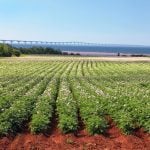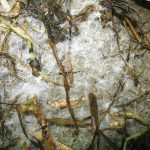
Tag Archives soil health

When wheels cause soil damage
Q & A with an expert

Les Henry: Fuzzy thinking about soils and agricultural performance
What constitutes sustainable on a farm depends on soil climatic zone and what is feasible for the area

Soil sampling time is here again
Five factors to consider to ensure success this fall

Tried-and-true soil strengthening tips
An Alberta producer offers a look at his soil health tactics

New biologicals on the market
A roundup of inoculants, biostimulants, pre-plant soil biofumigants and more coming your way

Sensible soil health for farmers
Take a problem-solving approach to soil management

The biggest bang for your buck? Improve soil organic matter
Soil organic matter is vital for crop production and soil health — here’s what it does, why and how to improve it on hilltops and knolls

Les Henry: How deep is deep?
Let us stretch your brain

What’s the relationship between soil organic matter and crop insurance?
Adjusting insurance premiums based on soil quality factors is an idea now being discussed

Sask. farmer’s soil health approach results in ‘soil armour’
Farmer Tim Nerbas protects his soil with a layer of organic material he calls “soil armour.” He says that and other conservation farming practices to improve soil health on his farm may take time — but it’s worth the wait


